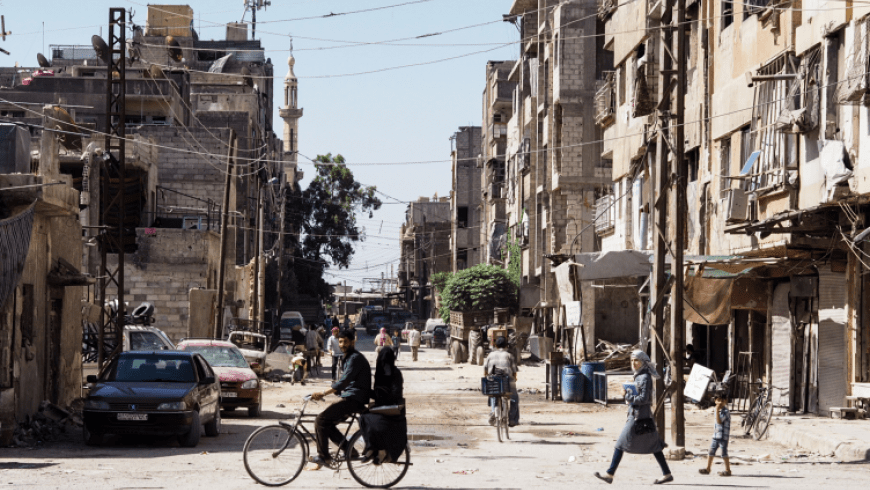The Syrian Network for Human Rights published a report revealing the Syrian regime’s use of laws to control real estate and land ownership in Syria before and after the Syrian Revolution. The report identified three targeted groups: forcibly displaced persons, forcibly disappeared persons, and unregistered deceased individuals. The regime’s control over legislative and judicial authorities allowed it to issue laws and decrees without approval from the People’s Assembly.
The forcibly displaced group includes approximately 12.3 million Syrian citizens, including refugees and internally displaced persons. The forcibly disappeared group comprises around 112,000 Syrians, with more than 85% of disappearances attributed to the regime. The unregistered deceased group consists of nearly half a million Syrian citizens, primarily opponents of the regime, who were not officially registered as deceased due to fear of associating with detained individuals or being labelled as terrorists.
In 2022, the Minister of Justice issued Circular No. 22, imposing strict requirements and increasing security services’ involvement in death confirmation lawsuits. This further complicated the process of obtaining death certificates.
The Syrian regime has been enacting or amending real estate development laws since Hafez al-Assad’s era to gradually seize properties throughout the country. It exploited the consequences of the armed conflict, issuing decrees to regulate real estate in areas it controlled, aiming to transfer vacant properties to loyalists.
The regime employed a legal arsenal to restrict the rights of displaced and refugee returnees, establishing administrative units and relying on promoters and real estate contractors loyal to the regime to exert control. Widespread destruction was used to force people to leave and cause damage, while opponents were denied basic rights, including obtaining identity papers. Denying Syrian nationality to Kurds further restricted their property rights, and Syrian women faced difficulties in property and housing issues.
The report concluded that the regime’s consolidation of legislative, judicial, and executive powers enabled it to issue laws serving its vision of seizing real estate from targeted groups. The regime also exploited indirect laws, such as anti-terrorism legislation, to prevent opponents and the three affected groups from disposing of their property within Syria. Most real estate laws were overlapping, unclear, and subject to bureaucratic obstacles that hindered property disposal.
The report called on the international community and the United Nations to condemn the regime’s control over the three authorities and expose its exploitation of laws to seize property from forcibly displaced persons, refugees, forcibly disappeared persons, and unregistered deceased individuals.
This article was translated and edited by The Syrian Observer. The Syrian Observer has not verified the content of this story. Responsibility for the information and views set out in this article lies entirely with the author.


